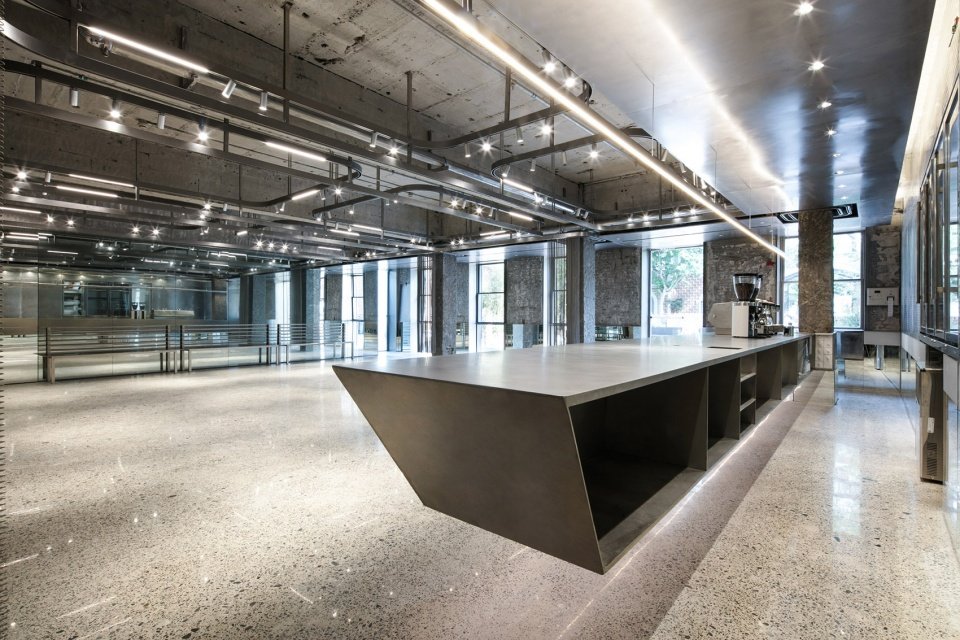Lustrous Ascents: Why Stainless Steel is the Elevator Designer’s Choice
Table of Contents
In the realm of modern architecture and design, materials are not just chosen for their strength and durability, but also for their aesthetic appeal. One material that stands out in both these aspects is the stainless steel decorative sheet, especially when it comes to elevator design. Elevators, while primarily functional, play a significant role in the first impression a building makes. Given their frequency of use and visibility, it is essential for them to be both robust and pleasing to the eye. This essay will delve into the reasons behind the growing preference for stainless steel decorative sheets in elevators and why the processing requirements for such plates are particularly high.
Aesthetic Appeal and Durability
Stainless steel decorative sheets bring a sleek, modern, and elegant look to any setting. Their reflective surface can make spaces appear larger, brighter, and more welcoming. This is especially beneficial for elevators, where the confinement of space can otherwise feel restricting. By utilizing decorative sheets, designers can instill a sense of luxury and cleanliness.
Additionally, stainless steel’s innate properties make it resistant to rust, corrosion, and staining. Given that elevators are used by numerous individuals daily, this resistance ensures that the decorative sheet maintains its pristine appearance for a long duration, reducing the need for frequent replacements or refurbishments.
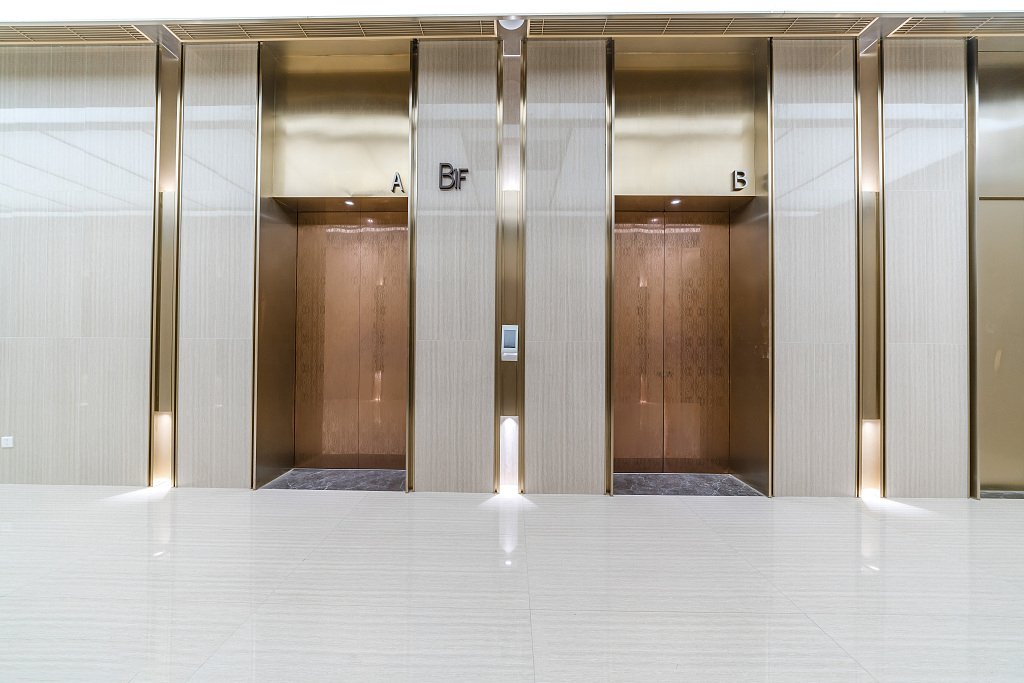
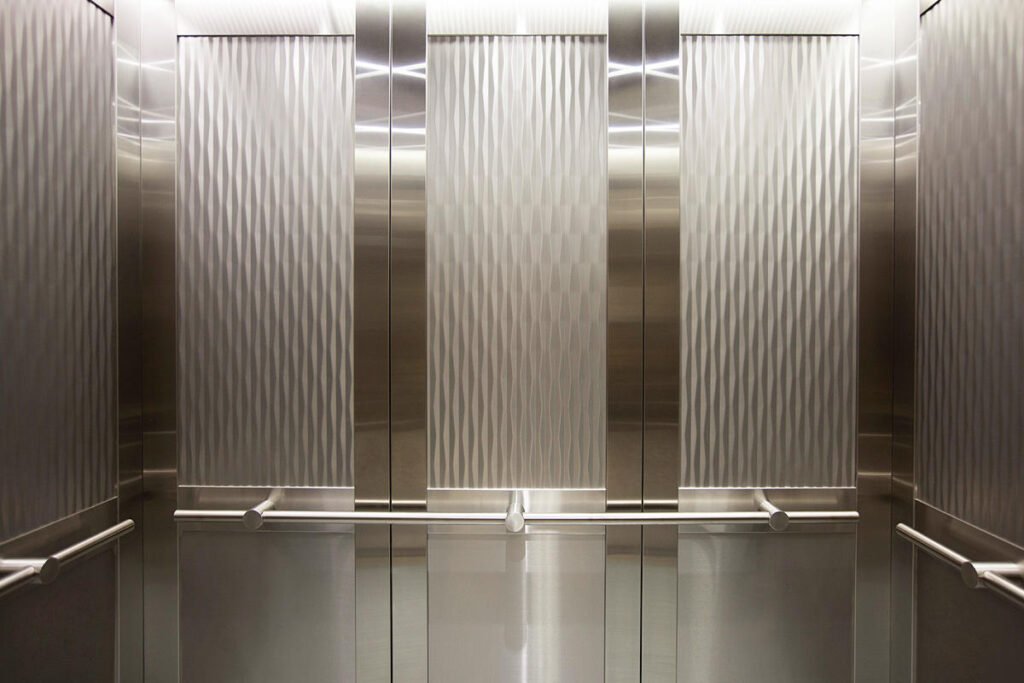
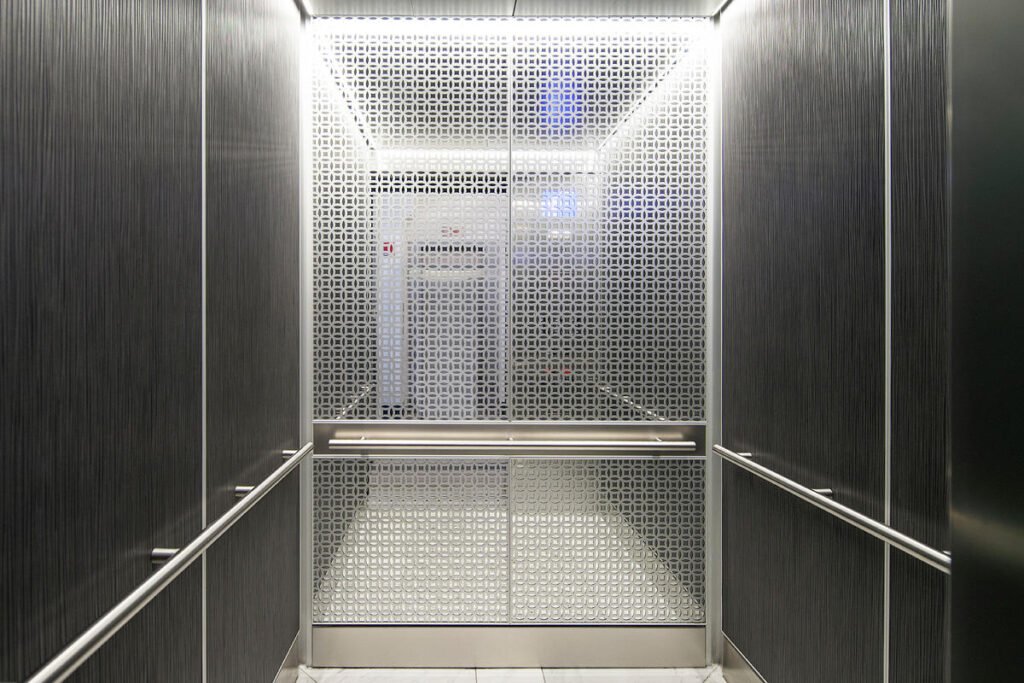
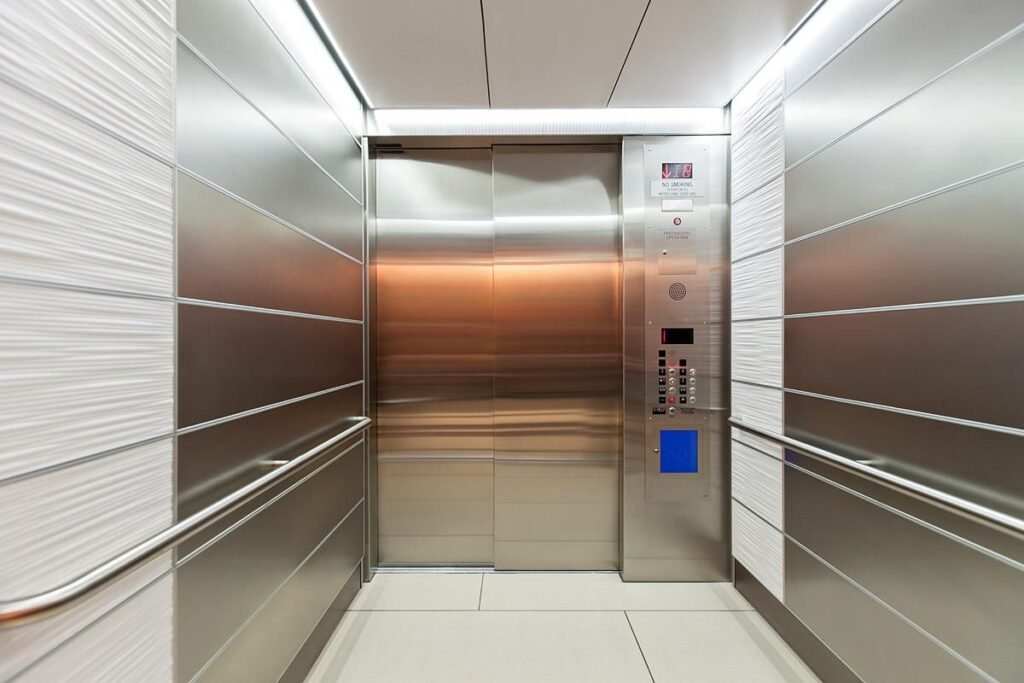
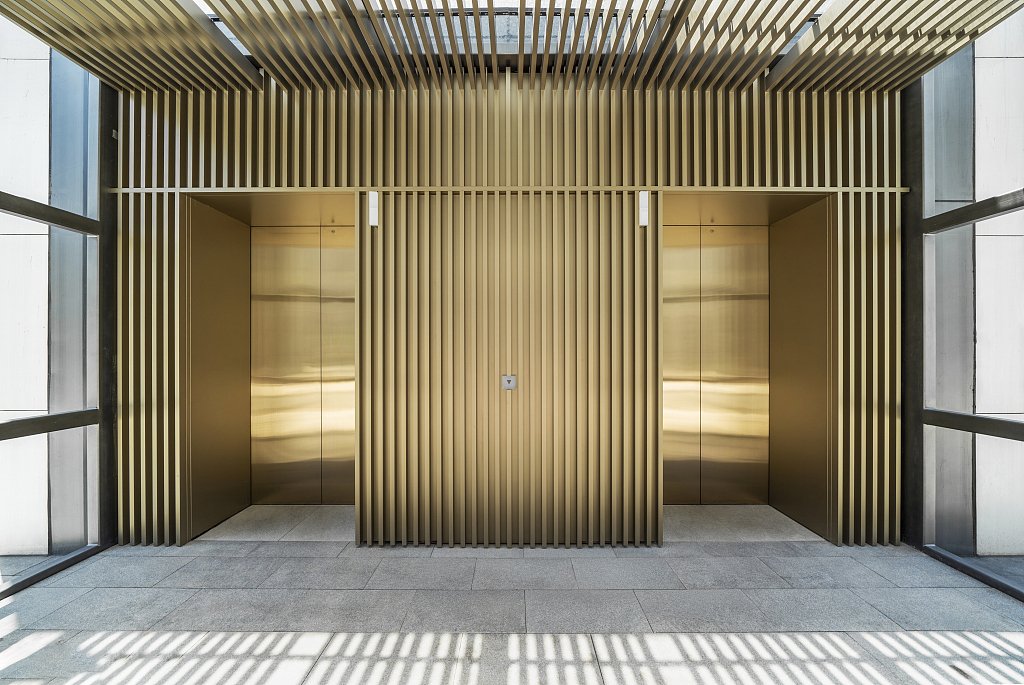
High Processing Requirements
The question arises – why are the processing requirements for stainless steel plates used for elevator decoration relatively high?
Precision and Consistency: Elevators are enclosed spaces where any imperfection or inconsistency can be easily spotted. Hence, stainless steel sheets must be precisely cut and processed to ensure a seamless fit and finish.
Safety Considerations: Elevators are subject to stringent safety regulations. The plates should not have sharp edges, and their surface must be smooth to ensure that they don’t pose any risk to users.
Surface Finish: Elevators require stainless steel sheets that are polished and treated to achieve a specific appearance, whether it’s a mirror finish, a brushed look, or any custom design. This demands meticulous processing.
Resilience to External Factors: Elevators can be subject to varying conditions such as humidity, temperature changes, and constant mechanical motion. The decorative sheets should be processed to endure these factors without warping or deteriorating.
Flexibility in Design: Modern architecture demands versatility. Stainless steel sheets for elevators might need to undergo processes like etching, embossing, or color treatments to align with the design vision. This requires sophisticated processing techniques.
Stainless steel decorative sheets have emerged as the material of choice for elevators, owing to their unique blend of aesthetics and durability. However, to truly tap into these benefits, there’s an undeniable need for high processing standards. By investing in such meticulous processing, builders and designers can ensure that the elevators are not just functional transport mediums, but also striking design elements that enhance the overall appeal of a building.
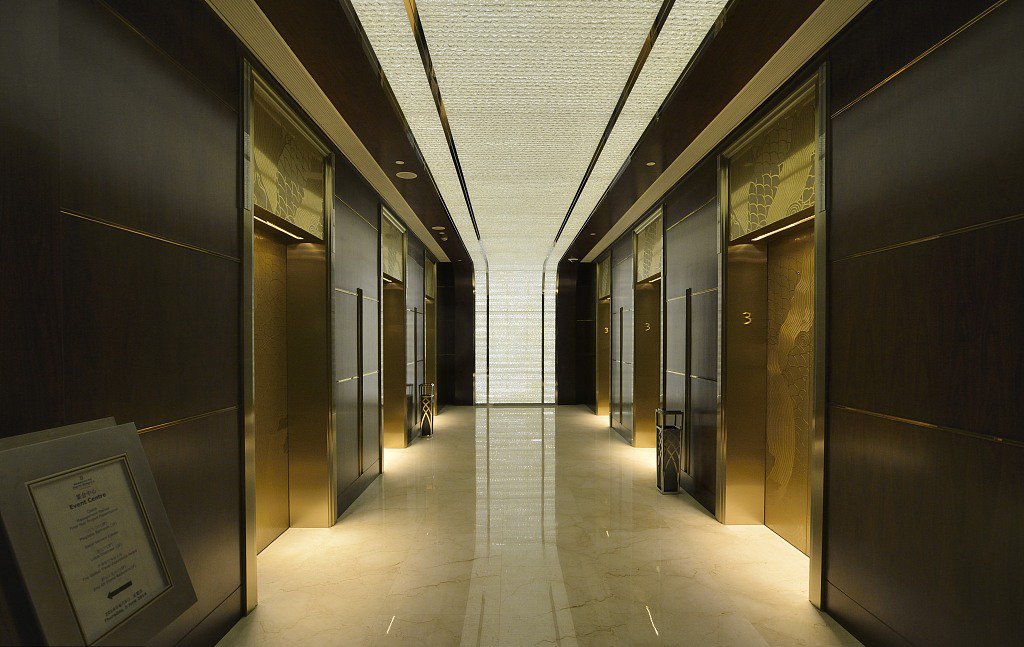
Mirror Finish and Etched Finish:
The Preferred Choices for Elevator Decoration
When entering an elevator, the first thing that most users notice isn’t just the buttons or the floor indicator, but the interior design that envelops them. As the demand for sophisticated and contemporary elevator designs has risen, the finishes of the materials used have become paramount. Among the many finishes available for stainless steel decorative sheets, the mirror finish and etched finish have become especially prominent in elevator decoration. Let’s delve deeper into the reasons for their popularity.
The Allure of the Mirror Finish
The mirror finish, as its name suggests, is a highly polished finish that reflects like a mirror.
Spacious Illusion: Given the confined space of an elevator, a mirror finish can give an illusion of a larger, more expansive area, making the elevator feel less claustrophobic.
Brightness and Elegance: A mirror finish increases the brightness inside the elevator. It reflects light, making the elevator appear more illuminated and inviting. Moreover, the sleek and shiny appearance adds a touch of elegance and sophistication.
Easy Maintenance: Smudges and fingerprints can be easily wiped off from a mirror finish, ensuring that the elevator retains its polished look with minimal maintenance.
The Intricacy of the Etched Finish
Etched finishes are achieved by applying controlled processes to the stainless steel sheet that eat away at the surface, resulting in intricate patterns and designs.
Customizable Designs: Etching offers unparalleled flexibility in design. Whether it’s the logo of a company, a contemporary pattern, or a classic design, etching can reproduce it on the elevator’s surface, allowing for personalized and unique interiors.
Texture and Depth: The etched finish introduces a tactile element to the otherwise smooth surface of stainless steel. This texture can add depth and dimension, making the elevator’s interior more engaging and visually intriguing.
Durability: The etching process doesn’t just provide visual benefits; it also enhances the sheet’s resistance to wear and tear. This ensures that the design remains intact and doesn’t fade over time, even with constant use.

Factors to be Considered in Stainless Steel Elevator Design
Environmental Considerations
Eco-friendly Sourcing: It’s imperative to source stainless steel that aligns with sustainable and environmentally-friendly practices. Elevator design should prioritize materials that have a reduced carbon footprint from their extraction to processing.
Durability: One of the environmental strengths of stainless steel is its long lifespan. The corrosion resistance, especially in grades suitable for environments like coastal areas, means fewer replacements and reduced waste.
Recyclability: Stainless steel is highly recyclable. Elevators designed with end-of-life in mind can contribute significantly to sustainability efforts.
User Safety
Smooth Edges: To prevent accidents, the edges should be meticulously finished to ensure they are smooth without sharp protrusions.
Fire Resistance: Elevator interiors should be crafted keeping in mind potential fire hazards. Stainless steel does not emit toxic fumes, but pairing it with other fire-resistant materials is crucial.
Reflective Properties: While mirror finishes are visually appealing, over-reflectivity can be disorienting. A balance ensuring ambient comfort is essential.
Acoustic Control: Elevators are confined spaces, and stainless steel’s reflective nature can amplify sounds. Integrating sound-absorbing materials or treatments can enhance user comfort.
Load-Bearing Capacities
Material Weight: Given that elevators have specific weight limits, the weight of the stainless steel, especially its thickness, should be factored into the overall design. It’s essential to ensure that decorative elements don’t compromise the elevator’s functional load-bearing capacity.
Integration with Other Materials: While stainless steel is robust, it often pairs with other materials like glass or wood in elevator designs. Ensuring seamless integration without adding undue weight requires strategic planning.
Robustness of Design: Elevator designs, especially those that use heavy decorative elements, should account for dynamic loads (like when the elevator is in motion or when several people enter at once). The structural integrity of the design, even under such stresses, is pivotal.
The art of designing elevators using stainless steel is a confluence of aesthetics, functionality, and responsibility. By seamlessly intertwining environmental considerations, prioritizing user safety, and ensuring optimal load-bearing capacities, modern elevators can elevate the user experience while adhering to the highest standards of responsibility and safety.
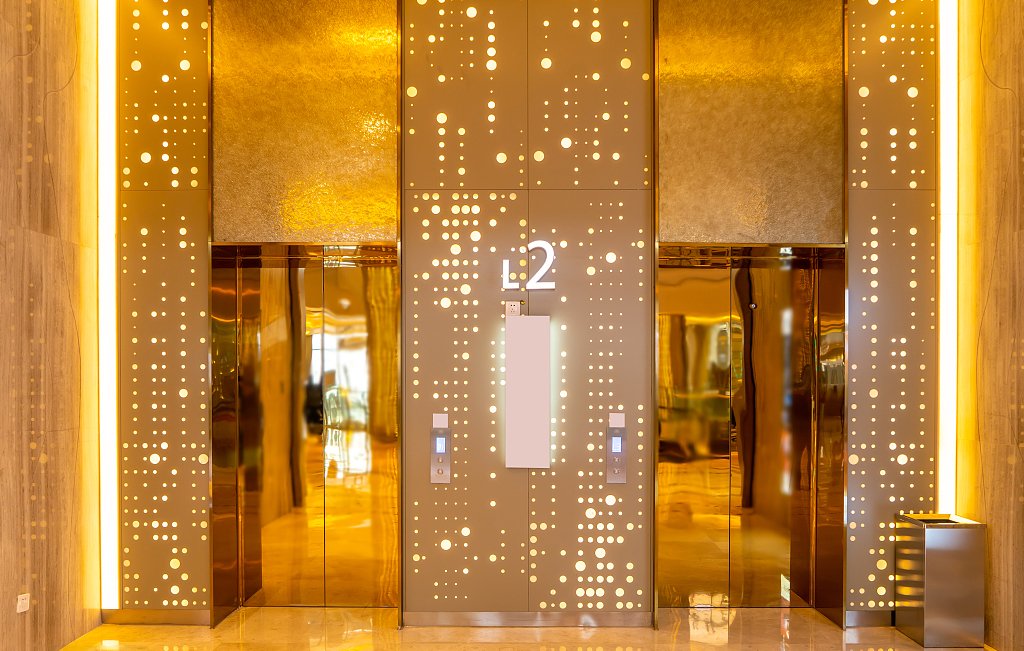
You Might Also Like
Please Share This
Recent Posts
- Stainless Steel Color Panels in Hotel Projects: Applications and Design Insights
- Stainless Steel Screens in Hotel Spaces: Design Strategies and Applications
- Large Stainless Steel Planters for Architectural and Commercial Landscape Projects
- Stainless Steel Outdoor Railings: Engineered for Durability, Designed for Style
- Metal Outdoor Signage: Durable, Customizable, and Professional Wayfinding Solutions


